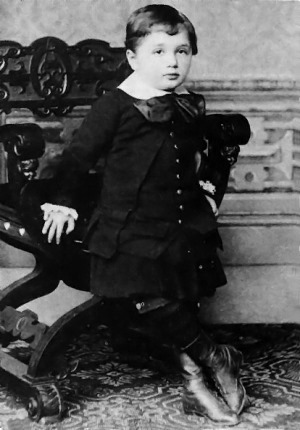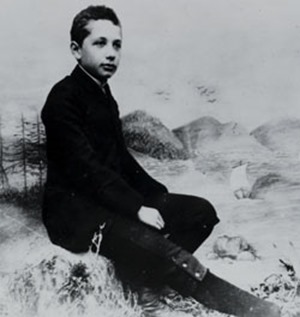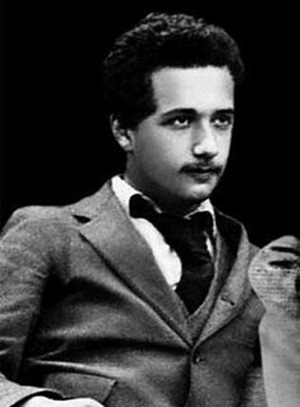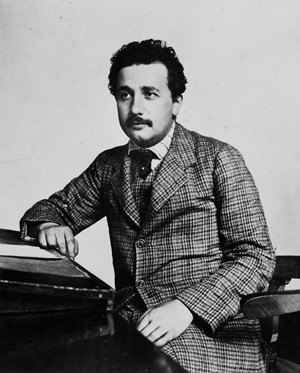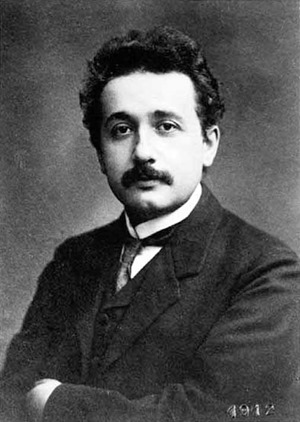Albert Einstein: The Cocky Patent Examiner Who Changed the Face of Science (Pt.1)
This is the first article of the new series “The Grand 20-Somethings”, which features stories of the world’s greatest icons in their twenties.
It was at the turn of the century when one thought “nothing new to be discovered in physics”, that the twenty-something Albert Einstein, upending all scientific dogmas, turned out 5 papers which included the Relativity Theory and the memorable equation: E=mc2 . Einstein’s twenties is the most creative decade of his life, thus arguably one of the most groundbreaking decades of physics and science in human history. This is what everyone knows.
What everyone does not know is that the young Albert Einstein, wrote these papers during his spare time, after 6 days a week, 8AM to 5PM, examining patents to make a living at the Swiss Patent Office, in his small apartment in Bern, Switzerland, with the help of his plain wife, while referring to them, half-jokingly, as “inconsequential babble”, having no idea how they would alter the course of history, and usher him to the pantheon of humankind’s greatest minds.
To understand the grand 20-something of Albert Einstein, let us trace back to his childhood and adolescent.
- { A misfit wanderer at birth } -
Einstein was born in 1879, in a middle-class Jewish family in the rural village of Germany. Being a Jew in Germany in the early of 20th century and suffered from school bullying, instilled in him a sense of being an outsider, a wanderer.
Contrary to folk lore – which unintentionally, or intentionally, comforts lazy students – Einstein did not fail math or had poor grades; he was consistently at the top of his class from primary to high school. However, the 17-year-old Einstein decided to drop out of high school in Munich, flee to Italy and later Switzerland, and renounce his German citizenship, for he fretted about the prospect of joining the army.
This rebellion against not only militarism, but also all forms of doctrine and authority, resulted from his early exposure and admiration for science.
“When a person can take pleasure in marching in step to a piece of music, it is enough to make me despise him. He as been given his big brain only by mistake.” He recalled his disdain once watching a troops’ parade.
- { A nonconformist “lazy dog” & An advocate for education based on freedom } -
This rebellious spirit of a nonconformist is the backdrop of Albert Einstein’s play in the theater of his life, and the wellspring of his creative genius.
It is also what attracted him to Aarau – a school founded by a Swiss educational reformer, whose teaching method emphasizes on students’ independent thinking. Einstein spent 1 blissful year in Aarau before entering college. Here he learned visual imagery – the prerequisite for his renowned talent in conducting “thought experiments”.
However, his college years in The Zurich Polytechnic, weren’t as blissful. Einstein’s rebellion and impudence got him in troubles, not intellectually but rather personally with his professors. Dissatisfied with the over-emphasis on the established foundations and the lack of contemporary topics, Einstein began to skip lectures to read modern physics written by pioneers at the time.
What irritated his professors is that he didn’t even bother hiding his casual disdain.
Einstein’s innocent confidence to question authorities and merry skepticism towards received wisdoms were the streaks of his soul.
History would end up cheering for these traits. But his professors didn’t. One professor called him “lazy dog”, the other had him flunked a physics course by giving a 1, and once he got kicked out of class due to his “lack of diligence”. The biggest problem arose when it came to his research thesis. Einstein quarreled with his professor on the topic, eventually being forced to research on something he considered distasteful. Not surprisingly, this earned him the lowest essay grade, and – amusing for history – a graduation grade near the bottom of his class.
This did not dispirit Einstein. Instead, he was proud with the identity of a nonconformist – who, for the entire life, yearned for intellectual freedom in education, and whose face would ultimately became the symbol of intelligence. In July 1900, with grades just enough to graduate from a teaching college, the 21-year-old Einstein was unaware of how strangely his future might unfold.
- { A merrily skeptical patent examiner } -
Something extremely peculiar about the great Albert Einstein is his difficulty in getting a job. At first, Einstein refused to become an engineer for the family business because he found the idea of having profit as the primary goal unbearable. In 6 months, he wrote letters to almost all professors in Europe asking for a starting academic role; no one accepted or even bothered to send back rejection mail. If not for the help of a friend, he wouldn’t have landed his first job - 1 year and a half after graduation - at the Swiss Patent Office in Bern.
There, for 7 years, Einstein spent 8 hours a day, 6 days a week, scrutinizing patent applications. He held onto his day job to earn a modest livelihood, and to keep his passion alive. However, those were not the only reasons that kept Einstein in Bern for 7 years: He was lucky enough to find a day job that contributed to his passion.
At the Swiss Patent Office, skepticism was highly encouraged: “When you pick up an application,” his boss instructed, “think that everything the inventor says is wrong.” This was perfect for Einstein’s innate rebellion against conventional wisdom. Thus he found his work to be fulfilling.
And it turned out to be a blessing for the world, as historians and himself concluded, that Einstein couldn’t get a post as assistant to a professor. He would’ve felt pressured whenever challenging accepted concepts, which might have caused him to either lose his job or settle for mediocrity. Being a patent examiner allowed Einstein to charge the powerhouse of his creative genius, which - in the words of the talented biographer Walter Isaacson – was:
A merry skepticism about what appeared on the pages in front of him and an independence of judgment that allowed him to challenge basic assumptions.
The third-class patent examiner also had a part-time tutoring job, and several hobbies for his spare time, including playing violin, making toys for his son, hanging out with his friends, imagining experiments in his head, and not least, churning out physics papers. How?
Einstein’s productivity was at its peak. He often finished the whole day work in a couple of hours, and spent the rest day-dreaming, imagining and writing. His boss did not mind.
Thus, it is understandable that these 7 years were the most creative 7 years of Albert Einstein. He did not see his day job as a burden, but a benefit to his science.
- { Family + Friendship + Science = … } -
- { What was Albert Einstein made of ? } -

--- Einstein: His Life and Universe by the master biographer Walter Isaacson is an incredible read and re-read. I’m grateful for the insights in this book in the process of writing this article.

